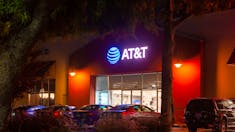BT Interview Questions & Application Process (2025 Guide)
- About BT
- Stage One: Online Application
- Stage Two: Online Tests
- Stage Three: Video Interview
empty
empty
empty
- Stage Four: Assessment Centre
empty
empty
empty
empty
Broadly speaking, BT offers two types of graduate schemes:
- Business (including specialisms such as Sales, Marketing, Legal or Business Management)
- Technology, which covers technical specialisms.
While the application processes for these two schemes are broadly similar, there are a number of differences around online testing and interview questions.
Depending on the role you apply for, you can expect the application process with BT to consist of the following stages:
- Online application
- Online tests: numerical reasoning (for Business) or software tests (for Software Engineering programme)
- Video interview
- Assessment centre
BT has outsourced the early stages of the selection process to a company called Futureboard, which conducts the initial CV sift, online testing and video interview. BT then takes over the process again at the assessment centre stage.
About BT
BT has various core values and it assesses candidates against these throughout the assessment process.
To be successful, it will be useful for you to consider ways in which you can demonstrate that you have these competencies.
The full list of competencies is:
- Customer – We are here for our customers
- Team – We help each other achieve more
- Honesty – We are honest and respectful
- Change – We all make change happen
- Pride – We are proud to make a difference
Stage One: Online Application
The application form is your first opportunity to introduce yourself to BT.
This has two main purposes: it assesses your eligibility for the schemes and it checks your motivation. Both are important.
Take the time to ensure that you meet the eligibility criteria here, as your application will not proceed if you do not and you will have wasted your time.
Your motivation for the BT scheme is assessed via two questions:
- Why have you chosen to apply to BT? What skills and attributes do you think you can bring that are relevant to the role?
- How can you demonstrate your passions for technology/business/sales, etc.?
These questions are both designed to understand your ‘fit’ with the organisation and your likely enduring interest in the role. Take time to answer each in detail.
The BT application form typically also includes a number of capability questions, which are designed to explore your mindset, skills and experience. Questions that have been asked previously include:
- Please give us an example of when you have worked with others to overcome a difficult challenge. What did you do? What feedback did you receive?
- Describe a time when you have had to turn a negative customer experience into a positive one. What action did you take? Why was it important?
- Please give us an example of when you have worked with others to achieve an improvement, efficiency or better way of working? What did you do? How did you convince others?
Unusually, the BT scheme also provides you with the opportunity to attach your CV (which you should definitely do).
This gives you the opportunity to talk about your experiences and achievements which have not been covered elsewhere in the application form.
Be sure to read this article on writing a great CV.
Stage Two: Online Tests
BT use online psychometric tests for all of their graduate programmes. Most candidates will sit a Kenexa numerical reasoning test, which will assess your ability to understand and apply numerical data.
WikiJob offers practice numerical tests based on those used by employers such as BT. To access the tests, click here.
See this article for general advice on aptitude tests.
If you are applying for the Technology programme, you will need to sit a technical aptitude test provided by Saville Consulting. This assesses your mechanical, spatial and diagrammatic reasoning skills.
Stage Three: Video Interview
If you are successful with the online tests, you will be invited to attend a video interview.
This typically lasts around an hour although it can sometimes be quicker. Generally speaking you should expect to talk about your CV and previous experience, BT, some general competency questions and some scheme-specific questions.
Sample questions for each of those categories could include the following:
CV and Previous Experience
- Why did you choose your university course?
- What experience did you learn from university?
- Why are you suited to this programme? Where did you learn these skills/qualities?
- How will you be a success at BT?
Questions about BT
BT is really keen on employing people who are passionate about the company, understand what it’s about and have done their research.
Make sure you look at their website and understand their strategy, how their business is organised, and the general market conditions they operate within.
Questions that have previously been asked about BT include:
- Why do you want to work at BT?
- Which BT products are you aware of?
- What are BT's values?
- Who are BTs main competitors?
- What do you know about the structure of BT?
- What is BT doing better than its competitors?
- How can BT continue to beat its competitors?
- Who are some of the clients that BT deals with?
- What is your favourite bit of BT technology?
Competency-Based Questions
You should also expect to answer a few competency questions – remember to think about how you can demonstrate that you have the BT values during these answers.
Questions that have previously been asked include:
- Tell me about a difficult situation you successfully faced.
- Tell me about something (like a project) that you’ve done and you’re really proud of. Why are you proud of it? What did it involve?
- How would you research a new project?
- Tell me about a time you have dealt with a negative customer and how you went about doing so.
Technical questions previously asked include:
- Why are you interested in network engineering?
- Why are you interested in software engineering?
- What have you done to update a current system or network? Were you successful?
- What trends in technology have you noticed? How will that help BT?
- What are the latest trends in technology? Why do you think these are trending/successful? Do you think that BT could tap into these trends’ success? If so, how?
- How do you keep up-to-date with the latest technology trends? Why do you choose these methods of keeping up with technology?
- What elements of networking appeal to you and why?
- What coding languages are you familiar with? Were these self-taught? What do you like about them?
- Tell me about a time you have used technology to improve a process? How and what were the lessons learned?
- Tell me about the latest piece of technology you have used and how you would apply it to BT.
- What is the difference between a router, a switch and a hub?
- Tell me about a piece of technology you used to complete a project.
- Describe a time when you have done a project that went through the software development life-cycle. Explain the steps in this cycle and how you implemented them.
- What do you know about Agile project management? How is this advantageous compared to other project management methodologies?
- What would you consider when designing a new network for a company?
Also expect questions about network devices, MPLS and the OSI Model.
Stage Four: Assessment Centre
There are typically between 10–12 people in your assessment centre and this will last a whole day. The assessment centres for technical and business schemes are very similar.
Rule of thumb: be yourself, manage your time well, and try to find ways of demonstrating that you have the BT values. There are usually four exercises:
Presentation Exercise
Candidates are given a topic four to five days before the assessment centre and asked to prepare a short presentation. The presentation should last 10 minutes and you can expect five to 10 minutes of questions from your assessor afterwards.
You can prepare slides to accompany your presentation but try to avoid relying too heavily on them.
Topics that have previously been allocated include:
- What do you think will be the main challenges for BT over the next five years?
- What do you think are the technology trends that will affect BT?
Group Exercise
There are usually four to six candidates involved in the group exercise. Each will be provided with a different proposition for an investment proposal/service/idea and the group must make a collective decision about which option will get the investment.
Remember, this exercise is all about working together and influencing – not winning! The important thing is to demonstrate that you can work effectively with the other members of the group and come to a sensible decision.
Interview
This is a one-to-one interview and it typically includes a couple of general questions about your CV, interests and previous experience.
Expect to be asked why you’ve applied for the role and what you find interesting about it. The majority of the interview tends to comprise of competency-based questions, such as:
- Tell me about a time you worked in a team or on a project.
- Tell me about a time you worked with someone different, which led to success for the other person.
- When have you given back to the community?
- When have you had to take on additional responsibility?
- When have you had to achieve a difficult task or goal?
- When have you had to challenge unacceptable behaviour?
If you are applying for a technical role, you should expect to be asked some technical questions are well.
Case Study
For this exercise, you will be given some information to read through (around 8–10 pages) and asked to prepare a SWOT analysis and/or make some recommendations.
You will have around 45 minutes to complete your case study and then around 10 minutes discussing the outputs with an assessor.








